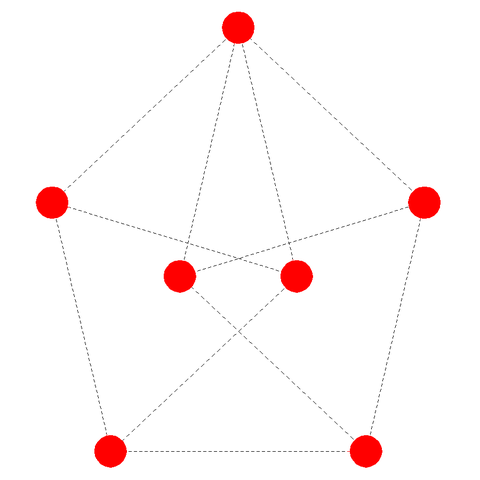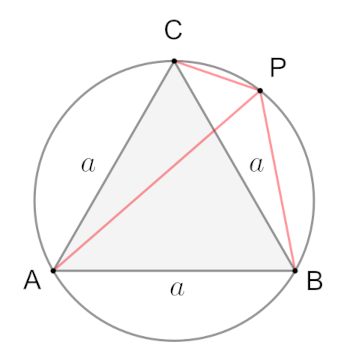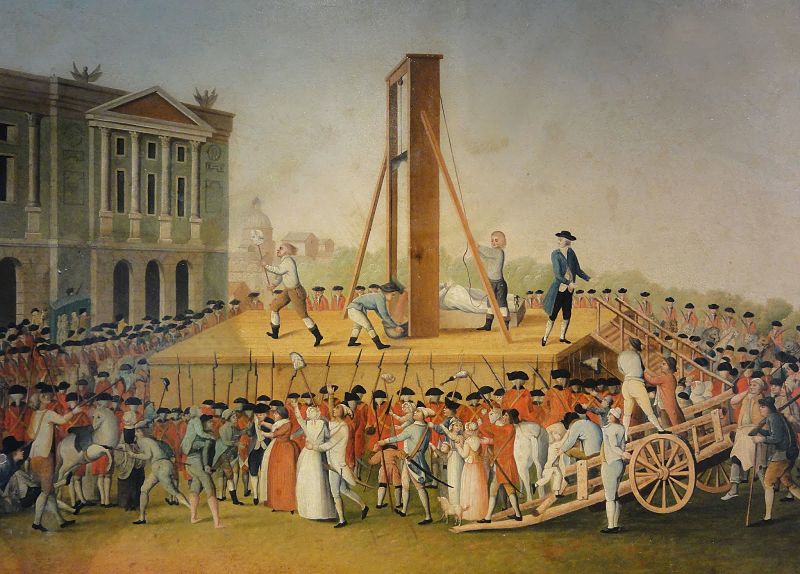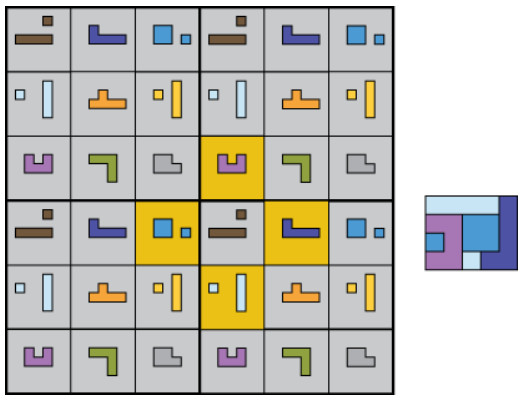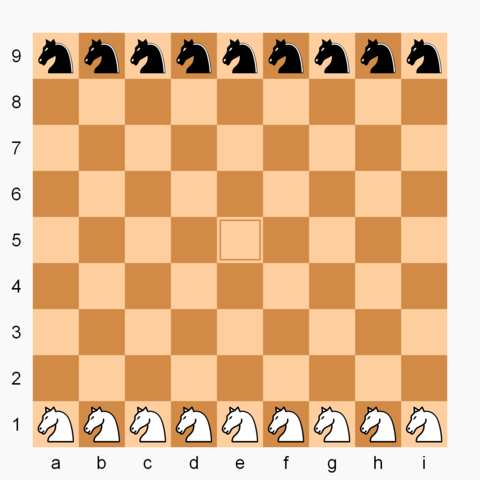
This is beautifully simple: The strategy game Jeson Mor, from Mongolia, is essentially a chess variant played on a 9×9 board. Each player gets nine knights, arranged as shown, and the winner is the first player who can occupy the central square and then leave that square on a subsequent turn. (Alternatively you can win by capturing all the opponent’s pieces.)
That’s it. It sounds straightforward, but with good play it becomes a delicate dance in which each side tries to prepare an attack of his own while compromising his opponent’s, and because the knights are short-range pieces, it tends to create a complex scrimmage in which an unexpected move will win the day.
You can play it online here; here’s a video of two new players trying it out.

